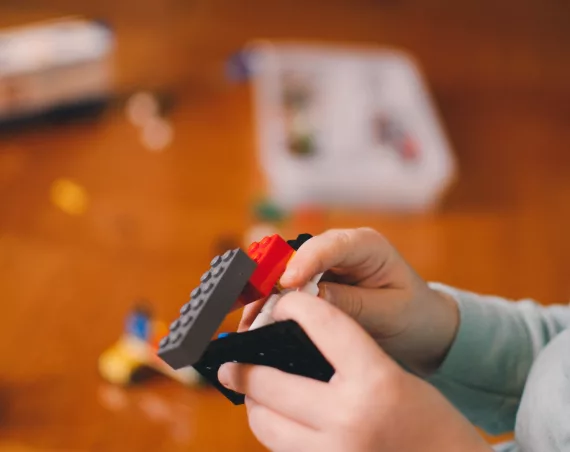
Song lyrics – The Beatles – We can work it out
Powered by RedCircle
Welcome
Hello and welcome to Learn English Vocabulary. My name is Jack and I’m making this podcast for you to learn or revise English vocabulary. You can find a transcript of this podcast on LearnEnglishVocabulary.co.uk. There’s a page for this podcast with the transcript, an activity and a task for you to do in the comments section.
Introduction
Today, I want to talk about a Beatles song called We can work it out. This song was requested by Nicky and it’s a great song so I’m delighted to talk about it. The lyrics are not very complicated and when I first looked at them, I wasn’t sure there was much for an upper-intermediate learner, but looking closer, there are some useful phrases. I have found eight useful phrases and although the vocabulary might seem pretty common, the uses are quite advanced.
1st verse
Let me start by reading you the first verse and then I’ll look at the language.
Try to see it my way
Do I have to keep on talking ’til I can’t go on?
while you see it your way
Run the risk of knowing that our love may soon be gone
OK. There are three useful phrases in this first verse. The first is to see something someone’s way. If you see or look at something from another person’s way, it means you imagine what they must think or feel about the situation. Try to see it my way is an imperative. It’s an instruction or a strong request. Try to see it my way, this almost sounds like he’s begging, try to see it my way. Try to understand this situation from my perspective, from my point of view.
The next line is a question. Do I have to keep on talking till I can’t go on? To go on means to continue. In positive sentences, it means the same as carry on. If someone is telling you a story and they stop at an interesting bit, you can say please go on. However, I think that this phrasal verb is more commonly used in negative statements. I can’t go on any more. I’m too tired, too sick, too angry, I can’t go on. In the song, Paul sings Do I have to keep on talking till I can’t go on? Because I’m too tired or I’ve lost my voice.
The next line has the same form as the first line but swapped around. While you see it your way … this mirrors the first line and it’s much less common, but the use means the same thing. To see something from someone’s perspective or point of view.
The final line in the first verse has the phrase run the risk. The risk means the possibility or chance of something bad happening. In the song, the bad thing is losing their love. The full phrase is run the risk which emphasises the activity. If you buy a second-hand car, you run the risk of buying a car with a lot of problems. We also say take a risk which is generally more positive. Adventurous people take risks bravely. Stupid people run risks recklessly or carelessly. I should also point out that the form is different. You run the risk of something bad if you do something dangerous – note that the risk is explained. It’s always the risk of something happening. When you use take you simply take a risk if you do something dangerous.
Chorus
In the chorus, the same line is repeated. We can work it out. Normally, to work something out means to solve a puzzle or find a solution to a problem. Are you still stuck on the crossword? Yes, I can’t work out the last answer. When a couple says they are trying to work things out or work it out, it means that they are trying to improve their relationship. In the song, Paul is singing we can work it out. We can solve the problems in our relationship, if you would just try to see things from my perspective.
2nd Verse
Let’s look at the second verse.
Think of what you’re saying
You can get it wrong and still you think that it’s alright
Think of what I’m saying
We can work it out and get it straight, or say good night
I am not sure if it’s necessary to talk about this first line. Think of means consider. It would be more common to say think about in this situation. Think of is normally used to mean remember or try to call to mind and I think it’s most commonly used in the negative. I can’t think of anything. What should we do today? I don’t know. I can’t think of anything to do. Did anything strange happen to you yesterday? I can’t think of anything.
In the last line in this verse, Paul uses the phrase get it straight. To get something straight means to make something clear, that is, make sure the people involved understand what’s happening. This is normally though reaching an agreement. It’s probably most common in the phrase: let me get this straight, which we use before restating the situation to makes sure that everyone agrees. Let me get this straight, you’re saying you were at home all night?
If we can’t get it straight then we will have to say good night. Normally we say good night at the end of the day before someone goes to bed. In this situation, it means it’s the end. It’s what people on TV say at the end of a late-night programme. Good night – we’re finished.
The middle bit
After the second chorus, there’s a really nice middle bit that goes:
Life is very short, and there’s no time
For fussing and fighting, my friend
I have always thought that it’s a crime
So, I will ask you once again
Fussing and fighting. Fuss is normally a noun and we use it in the phrase make a fuss. This means getting worked up and worried about something. If we say someone is making a fuss, it’s implied that we don’t think they have a good reason to be so worried. Stop making a fuss, it’s just a little accident. You’ll be fine. To fuss about something means to get worked up and worried or nervous and excited about something. It’s not commonly used as a verb. I think you should be a little careful with the word because it’s often used by men in a sexist way. Men sometimes belittle or put down the concerns of women by saying they are fussing or making a fuss.
Last verse
The last phrase I want to look at is from the last verse.
Try to see it my way
Only time will tell if I am right or I am wrong
While you see it your way
There’s a chance that we might fall apart before too long
Time will tell. This phrase means you will discover in the future. We will have to wait to find out if I’m right. It’s quite poetic so I think it’s usually used for big decisions, decisions that take some time for the consequences to be realised. For shorter future speculation, we say we will have to wait and see. So perhaps you’re baking a cake and you didn’t have enough egg so you tried adding some milk. In this instance, you’d have to say we’ll have to wait and see if the cake is any good. But if you do something more significant like buy a house, you could say: time will tell if this was a good purchase; if we made the right decision.
So, there are 8 useful phrases and items of vocabulary from the song We can work it out. Nicky has requested another Beatles song which I’ll take a look at next week, but if anyone else has a request for a song or a scene of a film, please let me know in the comments section on LearnEnglishVocabulary.co.uk
Conclusion
Remember, there is a webpage for this podcast on LearnEnglishVocabulary where you will find the transcript and some language activities to test yourself to see if you have learned the vocabulary from this podcast.
If you have enjoyed this podcast, please leave me a comment or a rating or a review. I love to hear from you and any comments or suggestions you have. So please visit LearnEnglishVocabulary.co.uk and say hello.
Thanks for listening.





3 Comments
Nicky
Fabulous lesson!
Thank you so much Jack for making a lesson about the song “we can work it out”.
You hit the nail on the head with the lesson. It has helped me a lot to have a deep insight on all the expressions used in the song. I also really enjoyed completing the lyrics below to test myself!
Again, I have no words to express how grateful I am to have found “Learn English Vocabulary” because I feel that my English skills skyrocketed. 😊
Kind regards
Iwona
I love your work, your voice and the way you talk about things- it’s so sincere and lively. I’ m never fed up with listening to you, please, never stop.
I’d appreciate a podcast on Mark Ronson’s feat. Miley Cyrus song Nothing breaks like a heart.
Iwona from Poland
Iwona
Dear Jack,
I love your work, your voice and the way you talk about things- it’s so sincere and lively. I’ m never fed up with listening to you, please, never stop.
I’d appreciate a podcast on Mark Ronson’s feat. Miley Cyrus song Nothing breaks like a heart.
Best regards,
Iwona from Poland